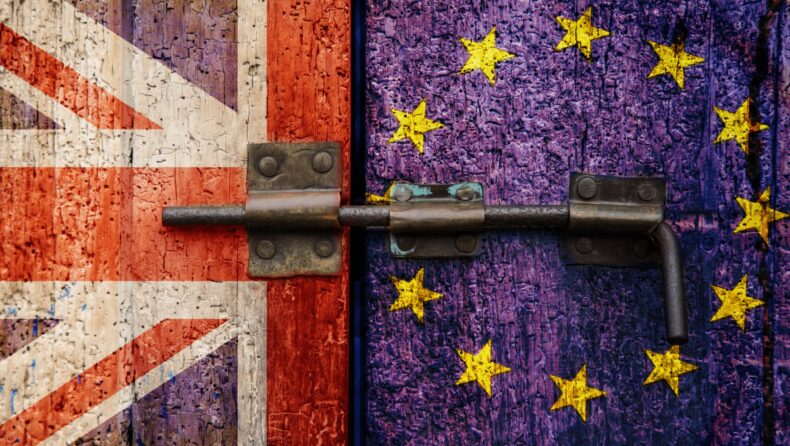The Windsor Framework represents a significant step forward in the United Kingdom’s relationship with the EU.
After months of tense negotiations, the United Kingdom and the European Union have finally reached a new agreement on post-Brexit trade rules for Northern Ireland. The new deal, known as the “Windsor Framework,” replaces the original Northern Ireland Protocol and aims to eliminate any sense of a border between the UK and its province.

UNITED KINGDOM AND THE NI PROTOCOL
The Northern Ireland protocol was designed to avoid imposing politically contentious checks along the 500-km land border with Ireland. However, it effectively created a border for some goods moving from Britain because it kept Northern Ireland in the EU’s single market for goods, which lead to Northern Ireland being subject to some EU rules even though it was not a member.

This created anger among many in unionist communities who felt that the protocol eroded Northern Ireland’s place in the United Kingdom. As a result, the Democratic Unionist Party (DUP) boycotted Northern Ireland’s power-sharing arrangements, which were central to the 1998 peace agreement that ended three decades of sectarian and political violence in Northern Ireland.
KEY POINTS OF THE FRAMEWORK
The agreement was struck between British Prime Minister Rishi Sunak and European Commission President Ursula von der Leyen and was announced at a joint news conference in Windsor. Sunak described the agreement as a decisive breakthrough and the beginning of a new chapter in the United Kingdom’s relationship with the EU.

The Windsor Framework has the following key part:
- Free flow of trade: The two sides have decided to create two lanes. Goods destined for Northern Ireland will go into the “green lane” and will require minimum paperwork and no checks while those destined for Ireland and the EU will be placed in the “red lane”. The red lane entails checks and paperwork. This is designed to reduce paperwork and streamline the trade flow.
- EU laws: The Northern Ireland Assembly will now be able to pull an emergency brake. The Stormont Brake gives an unequivocal veto to the United Kingdom. The NI Assembly engage it when 30 out of 90 members of two opposite parties oppose new EU single market rules. Once the United Kingdom informs the EU that the brake has been triggered, the rule in question is automatically suspended. This process, however, is not subject to oversight by the European Court of Justice.
- Value-added tax and state aid: Under the new deal, the British government will have the freedom to set VAT and subsidies in most instances in Northern Ireland, instead of businesses following EU rules on state aid and VAT.
- Horizon: British scientists had been concerned about missing out on funding from Horizon, a €95.5 billion ($101 billion) program that offers grants and projects to researchers. EU had blocked Britain’s participation over the government’s stance on NI Protocol. Once the new deal is implemented, work would begin on restarting Britain’s work with Horizon.
ROAD AHEAD
The success of the Windsor Framework is likely to hinge on whether it convinces the DUP to end its boycott of Northern Ireland’s power-sharing arrangements. If the DUP accepts the new deal, it will strengthen Sunak’s hold over his Conservative Party and enable him to move past the most contentious issue.

However, the deal is not without its critics. The European Research Group, which brings together pro-Brexit Conservative lawmakers, has said they will study the details before giving their verdict. Any failure to secure support could result in a rebellion from the eurosceptic wing of the Conservative Party, reviving the deep ideological divisions that have at times paralysed the government since the vote to leave the EU in 2016.
Despite the challenges ahead, the Windsor Framework represents a significant step forward in the UK’s relationship with the EU. It shows that, despite their differences, the two sides are still able to work together to find solutions to complex issues. It also provides much-needed certainty for businesses operating in Northern Ireland, who will welcome the easing of trade rules.












